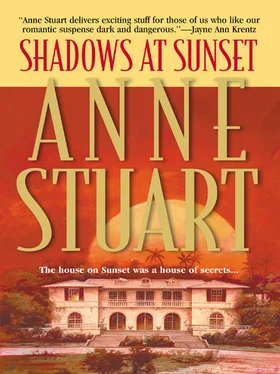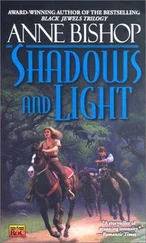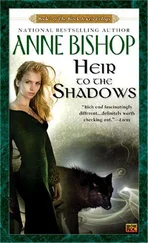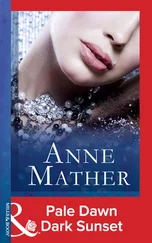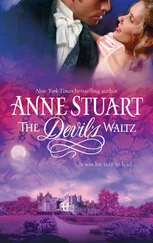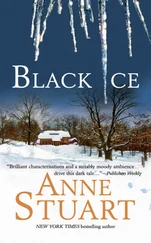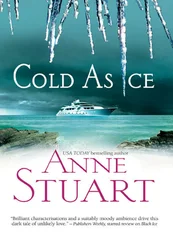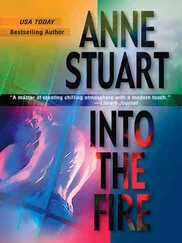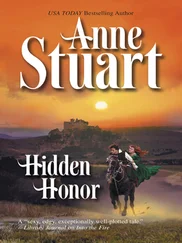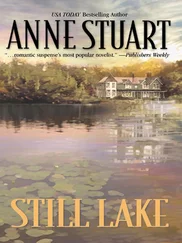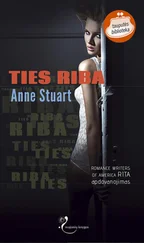Someone was watching her.
Jilly opened her eyes and blinked, startled by the dimness of the room. It was late, the sky outside the broad expanse of windows was settling into an early autumn night, and the man watching her was blocking the door, consumed in shadows.
The hushed activity of Meyer Enterprises had stilled. It was very late, and she was alone with a stranger. If she had any sense at all she’d be scared to death.
“Are you going to hover there?” she asked in a tart voice, forcing herself to take her time in getting off the sofa.
He flicked on the light, and she blinked, momentarily disoriented after the shadowy dimness of the room. “I’m sorry I kept you so long.”
“I wasn’t waiting to see you. I don’t even know who you are. I was waiting to see Jackson.”
He stepped into the room, and his smile was deprecating, charming and completely false. “Your father asked me to handle it, Jillian. I’m—”
“Coltrane,” she supplied flatly. “I should have guessed.”
“Why?”
“My brother told me all about you.”
“Nothing flattering, I’m sure,” he said lightly.
Shadows at Sunset
Anne Stuart

First, I have to send huge thanks to my Genie sisters, Teresa Hill, Christie Ridgway and Barbara Samuel. They are goddesses extraordinaire, and really helped me jump-start this.
And thanks to Jackson Norton for letting me use his name. He’s the only Jackson I know, and he really is a most excellent young man, nothing at all like the wicked Jackson in this book.
And as always, for Richie and Kate and Timmy, for making me work when I’d rather play with them.
Prologue
Chapter 1
Chapter 2
Chapter 3
Chapter 4
Chapter 5
Chapter 6
Chapter 7
Chapter 8
Chapter 9
Chapter 10
Chapter 11
Chapter 12
Chapter 13
Chapter 14
Chapter 15
Chapter 16
Chapter 17
Chapter 18
Chapter 19
Chapter 20
Chapter 21
Chapter 22
Chapter 23
Chapter 24
From: Hollywood Haunts, Hartsfield Books, 1974
One of the most interesting houses in Hollywood is the famous La Casa de Sombras—House of Shadows. Built by the Greene brothers in 1928, La Casa is a perfect example of Spanish Colonial revival mixed with Mediterranean and Muslim influences. The once lavishly landscaped grounds are extensive, though recently the estate has fallen into disrepair and most likely will be razed.
La Casa de Sombras was the site of an infamous murder-suicide pact in the early 1950s. Fading film star Brenda de Lorillard shot her married lover, director Ted Hughes, before turning the gun on herself. Though a trail of blood led through the ornate house, both bodies were found in the lavish master bedroom. In the ensuing decades their ghosts have been spotted, at times arguing, at other times dancing on the terrace by moonlight, and occasionally, to the embarrassment of certain well-known Hollywood Realtors, in flagrante delicto on the large banquet table. Mystery still shrouds the reason for the murder-suicide.
The house was purchased by Meyer Enterprises and remained empty until the mid 1960s, when its grand elegance was tarnished after it was turned into a hippie crash pad for some of Hollywood’s notorious young actors and musicians. In recent years efforts had been made to restore the Grand Old Lady by the present owners, but like much of Hollywood’s architectural history, its days are most likely numbered. One can only wonder where the ghosts will go, once the baroque mansion is demolished.
Brenda de Lorillard, star of stage, screen, tabloids and nightmares, stretched her lithe body with a little catlike gesture, then made a moue at her beloved. “It’s been more than fifteen years since they published that dreadful book, darling. I think they’ve forgotten all about us.”
Ted lowered his newspaper and glanced at her through his wire-rimmed glasses. When he first started wearing them she’d teased him unmercifully. After all, why in heaven’s name should a ghost need reading glasses? They were dead, for heaven’s sake. How could his eyesight possibly deteriorate? And where the hell had he found those glasses, anyway?
But he’d simply given her his usual, indulgent smile, and as always Brenda was lost, as she had been when she first saw him across the bright lights of a movie set, when he was a lowly director of photography and she was a grand star. She’d loved him ever since, no matter how illogical. She’d spent almost her entire life, thirty-three…er…twenty-eight years focused on her career, and she’d put it all at risk for a mad infatuation that never faded, through career disaster, through time, through death itself.
“I wouldn’t worry about it, honeybunch,” he said, taking a sip of his coffee. “The place is still standing, though just barely, and the house tours still stop by the gates occasionally.”
“It’s the scandal tour,” Brenda said. “The same people who go visit Valentino’s grave and the place where the Black Dahlia was found. Hardly befitting a gorgeous villa like La Casa de Sombras!” she said with a sniff. “And not very flattering to the two of us. I hate thinking our only legacy was our death.”
Ted set his glasses down beside the newspaper, turning to look at her out of those wonderful gray eyes of his. The newspaper was the Los Angeles Times, dated October 27, 1951, the day before they died. It never changed, and Ted read it every morning with the air of a man who was seeing it for the first time. As Brenda suspected he was.
“Honeybunch, anyone who sees your movies will remember you in all your glory. Especially the ones I directed,” he added with a mischievous grin. “Scandals fade, art remains. Ars longa, vita brevis, you know.”
“Stop quoting movie slogans at me,” she snapped. “I never worked for MGM and I’m glad of it.”
“It’s a little older than that….”
“Don’t condescend to me, either, with your Ivy League education,” she interrupted him, glaring at her nails. She filed them every day, searching out little imperfections, and each day she found new ones. There was one major glory in that, though. She never aged. She missed seeing her reflection in the mirrors that filled every room of La Casa, but she knew from the look in Ted’s eyes that she was still just as beautiful as she’d ever been. It was all she needed.
“They’re not going to tear it down,” he said patiently. “It survived the sixties and those repulsive creatures who camped out here. It’s survived years of neglect, and at least now we have someone who loves it as much as we do. She’ll take care of the place. And of us.”
“But what if she doesn’t?” Brenda cried. “What if they tear it down to make office buildings? We’ll be left wandering the earth, lost….”
“Honeybunch,” he said, his voice warm and comforting, and she slid into his arms so naturally, finding the peace that was always there. “We’ll make it through. Don’t we always, you and me together?”
She looked at him, so dear, so sweet, so maddening, so eternal. “Always,” she said in a tremulous voice. She leaned down to press her carmine lips against his firm mouth, and slowly they began their inevitable fade-out.
Jilly Meyer never approached her father’s office without some sort of absurd fantasy playing through her mind. The last time she’d come she hadn’t been able to shake the image of a French aristocrat riding in a tumbrel to her untimely doom. The reality of that unpleasant meeting with her father had been about as grim, and she hadn’t exchanged more than a handful of civil words to him in the eighteen months since.
Читать дальше
